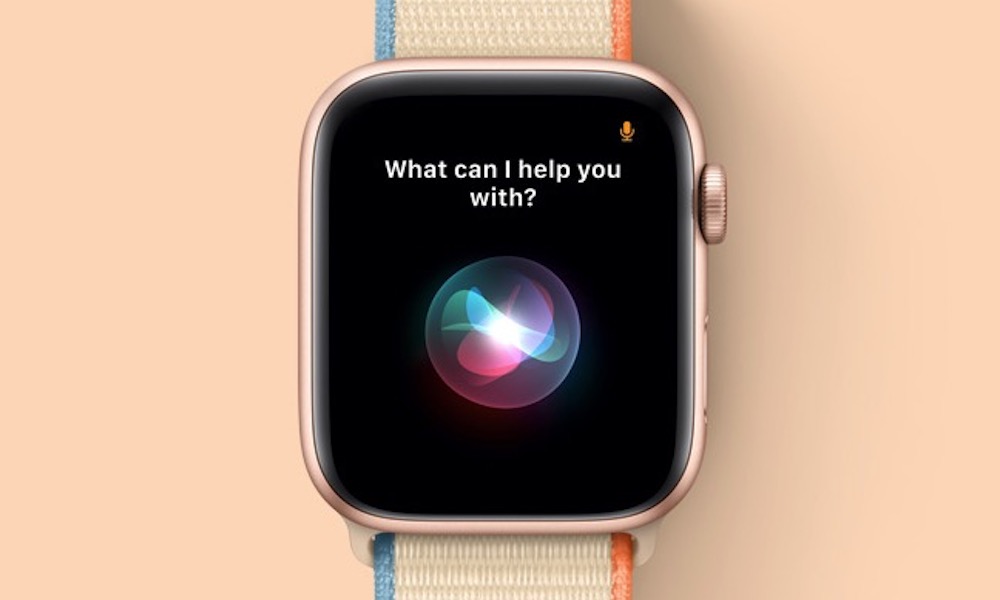Siri Eavesdropping Lawsuit Expands to Accuse Apple of Colluding with Advertisers
 Credit: Apple
Credit: AppleToggle Dark Mode
A U.S. judge has ruled that a class-action lawsuit accusing Apple of using Siri to violate user privacy will be allowed to proceed, but only so that the plaintiffs can attempt to prove the merits of their case.
Originally filed in 2019, the lawsuit claims that Siri was violating their privacy by recording their private conversations that Apple then sold to advertisers and other third parties.
According to Reuters, U.S. District Judge Jeffrey White said that the plaintiffs in the case would be allowed to try to prove not only that Siri recorded their private conversations from “accidental activations” of Siri, but that Apple had disclosed these conversations to third parties, such as advertisers.
For example, one Siri user cited in the case claims that he had private discussions with his doctor about a “brand name surgical treatment” and then suddenly began receiving targeted ads for that specific treatment. Two others indicated that they began receiving ads for Air Jordan sneakers, Pit Viper sunglasses, and Olive Garden only after discussing these specific products and businesses.
Apple faults plaintiffs for not alleging the contents of their communications, but the private setting alone is enough to show a reasonable expectation of privacy.
U.S. District Judge Jeffrey White
The original lawsuit alleged that Apple violated the federal Wiretap Act and California privacy law, committed a breach of contract, and claimed unfair competition. Judge White upheld the first two claims but dismissed the one regarding unfair competition.
Siri Recordings are Driving Ads?
While the case originally stems from the 2019 revelation that third-party contractors had been listening to private Siri conversations, it has now been expanded in scope and refiled after Judge White tossed it out earlier this year for lacking sufficient factual support for the plaintiffs’ claims.
For instance, the 2019 filings made no mention of possible links to ads or advertising companies. Instead, it focused solely on the claim that Apple was making “unlawful and intentional recording of individuals confidential communications without their consent.”
As a whistleblower revealed in 2019, Apple had been collecting recordings of “accidental activations” of Siri from its various devices — those cases where a device mistakenly thought it heard “Hey Siri” and began listening for more. These recordings were sent to third-party contractors to be reviewed in an attempt to improve Apple’s algorithms and reduce false positives.
Even though they were digitally anonymized, many of them included personal information. In other words, if somebody was recorded while speaking information like their name, address, or phone number, Apple may not have been able to tie the information directly to a device or Apple ID.
As a result of this, Apple made some significant changes to its Siri grading program, most notably requiring users to opt-in before sharing their Siri recordings with the company in any way.
In dismissing the original lawsuit, Judge White stated that the plaintiffs didn’t have enough facts to support their claims that they had directly suffered any actual harm from Apple’s actions. Instead, they’d provided merely “conjectural” and “hypothetical” examples of harm without demonstrating how any of their actual private data was collected and used by Apple.
However, the Judge also noted that they could revise and refile their suit if they could provide additional evidence that demonstrated they’d actually suffered an injury in a “concrete and particularized” way by showing Apple had collected specific recordings of their own private communications from Siri being accidentally triggered.
Due to how Apple anonymizes Siri recordings, it would be virtually impossible to obtain concrete evidence. However, the revised suit appears to be taking a different tack by trying to tie it to claims that Apple had gone even further in the alleged privacy violations by providing these recordings to advertisers so that the plaintiffs could be targeted with customized ads.
This new theory likely stems from long-held speculation that iPhones — and various apps on them — are listening in on our conversations. However, while there’s been lots of debate about whether ad-driven companies like Google and Facebook are pulling these kinds of tricks, this has never been Apple’s business model.
Since there has never been a shred of evidence that Apple provides Siri recordings to any third parties, much fewer advertisers, this particular allegation will be difficult to prove beyond the circumstantial. Still, it sounds like Judge White has decided that they’re welcome to try.






